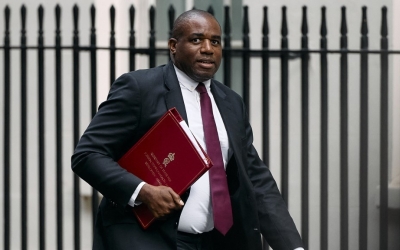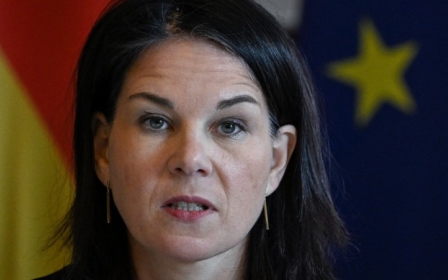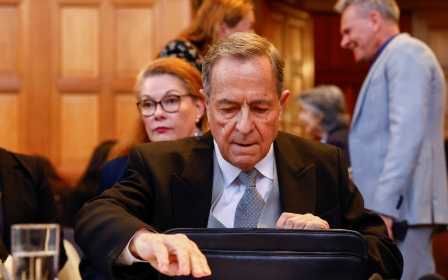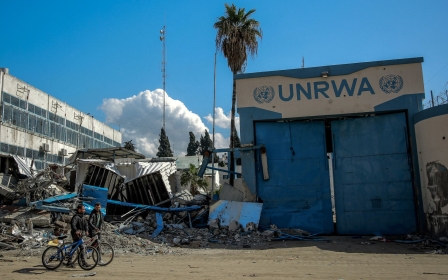German officials row back on report that new arms licenses to Israel have stopped
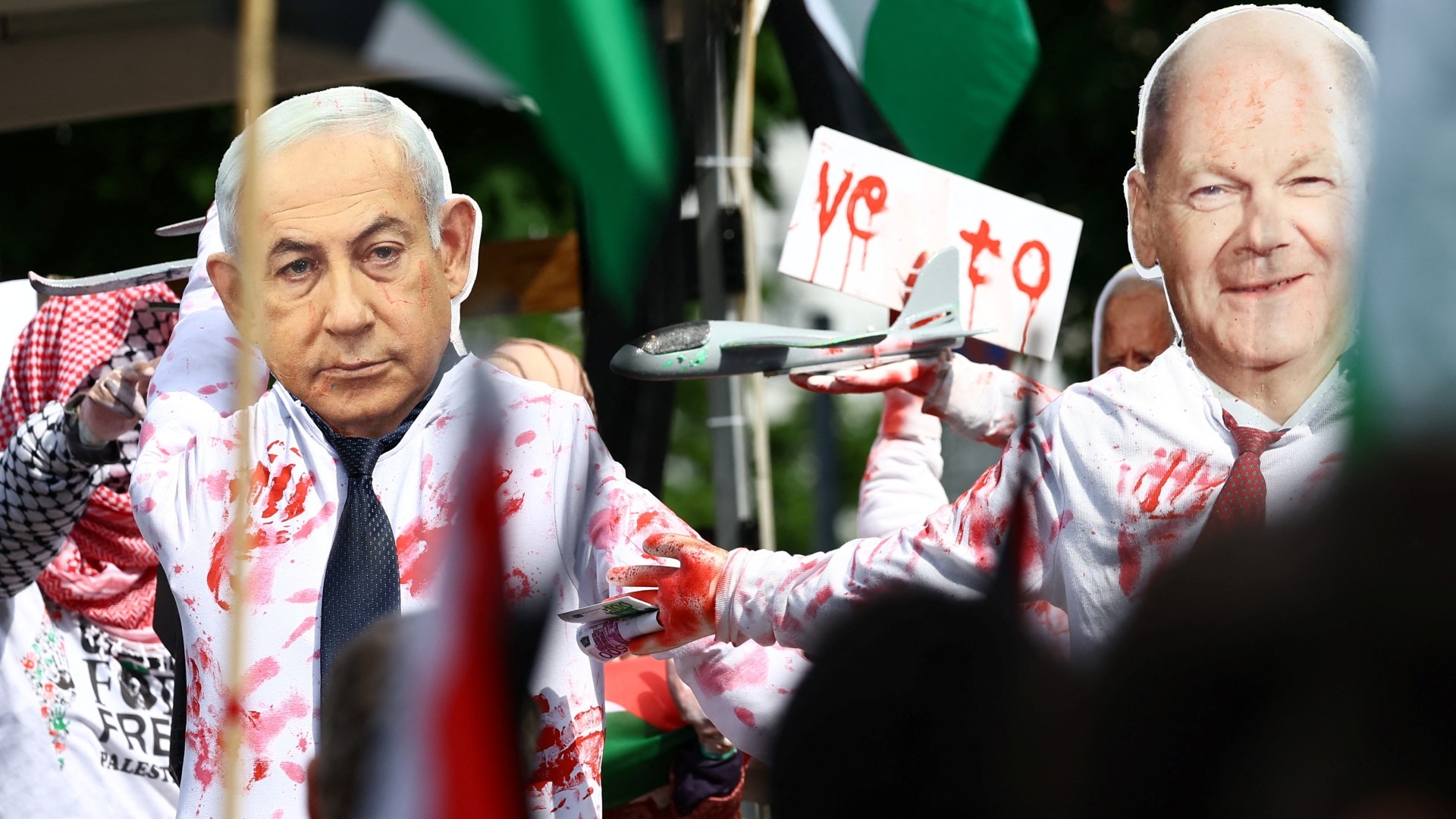
German officials on Wednesday appeared to row back on reports that new arms export licences to Israel had been put on hold pending legal challenges.
Speaking to residents in the western city of Osnabrueck, Economy Minister Robert Habeck said Germany planned to take a closer look at whether the weapons supplied to Israel are being used in violation of international law amid the war on Gaza.
Habeck, who is also Germany's vice-chancellor, said: "Where there is suspicion that international humanitarian law is being violated, [the issue] will be treated differently," Bloomberg News quoted him as saying.
The government will "take a close look," he added.
According to Bloomberg, Habeck stressed that Germany would continue to supply Israel with weapons, adding that the two countries had a "close military alliance" with Berlin having a "historical obligation" towards Israel because of Nazi Germany's crimes against the Jewish people.
New MEE newsletter: Jerusalem Dispatch
Sign up to get the latest insights and analysis on Israel-Palestine, alongside Turkey Unpacked and other MEE newsletters
His comments came as a spokesperson for Germany's Economic Ministry denied reports that permits for arms exports to Israel had been suspended.
"There is no ban on arms exports to Israel, and there will be no ban," the spokesperson told the dpa news agency.
The spokesperson's remarks came after the Reuters news agency published a report which claimed that new licences for the export of "weapons of war" to Israel had been put on hold pending legal challenges.
Citing data from Germany's economy ministry and a source close to it, Reuters reported that licences for "weapons of war" to Israel amounted to just $36,150 in 2024 and total arms exports dropped to $16.1m.
In 2023, arms exports including military equipment and weapons of war totalled $363.5m - a 10-fold increase from 2022.
According to the report, Germany "had stopped work on approving export licences for arms to Israel pending a resolution of legal cases arguing that such exports from Germany breached humanitarian law".
Germany currently faces two cases, one at the International Court of Justice (ICJ) and one brought by the European Center for Constitutional and Human Rights (ECCHR).
In March this year, Nicaragua formally submitted an application at the ICJ against Germany, accusing the country of both failing to prevent a genocide of Palestinians in Gaza and also of having "contributed to the commission of genocide".
In its request, Nicaragua asked the ICJ to declare that Germany had failed to uphold its obligations under the Genocide Convention to prevent genocide in Gaza, by providing support to Israel and by cutting funding to the UN Relief and Works Agency for Palestinian Refugees (Unrwa).
The application asks the court to "adjudge and declare" that Germany has violated international humanitarian law, including its obligations under the Geneva Conventions of 1949 and their Additional Protocols of 1977.
During a two-day hearing, Nicaragua accused Germany of “facilitating the commission of genocide”, demanding the court impose emergency measures to halt German arms exports to Israel and reinstate funding for Unrwa.
Germany rejected the charges but the ICJ rejected the German request to throw out the Nicaraguan case.
The ECCHR filed a lawsuit in Berlin in April this year looking to suspend export licences issued by the German government for arms shipments to Israel.
The suit is on behalf of five Palestinians living in the Gaza Strip whose family members were killed during Israeli rocket attacks.
In their defence against the ECCHR lawsuit, a German government source told Reuters it had not exported any "weapons of war" under any licence to Israel since the 7 October Hamas-led attacks on southern Israel, aside from spare parts for long-term contracts.
Ripple effect
No verdict has been reached in the ICJ case but the legal challenges have had a ripple effect across Europe.
In early September, the UK suspended 30 arms export licences to Israel following a review under the new Labour government which found that British-made weapons may have been used in violation of international humanitarian law in Gaza.
The suspension, announced by Foreign Secretary David Lammy in parliament, covers components for other types of military aircraft, including fighter planes, helicopters and drones. Around 320 other licences, including for items for civilian use, remain in place.
In February, a court in the Netherlands ordered the country to stop all exports of components for the F-35 fighter jets over concerns they could be used against civilians in Gaza.
Another legal challenge that has caused friction between US allies has been the International Criminal Court's attempt to seek arrest warrants for Israeli Prime Minister Benjamin Netanyahu and Israeli Defence Minister Yoav Gallant.
In July, Middle East Eye reported that the US was lobbying the UK’s new Labour government not to drop a legal challenge against the International Criminal Court (ICC) in seeking arrest warrants for Israeli Prime Minister Benjamin Netanyahu and his defence minister.
However UK government reversed its opposition to the ICC warrant requests against Netanyahu and Yoav Gallant in late July.
“We’ve been very clear about the importance of the rule of law and the independence of the courts both domestically and internationally,” a spokesperson for Prime Minister Keir Starmer said at the time.
“And our position on this process matter is that it is for the courts and prosecutor to decide and that’s why we’ve not taken forward plans put forward by the previous government,” the spokesperson said.
So far the warrant requests from the prosecutor, Karim Khan, have not been granted by the ICC.
Middle East Eye delivers independent and unrivalled coverage and analysis of the Middle East, North Africa and beyond. To learn more about republishing this content and the associated fees, please fill out this form. More about MEE can be found here.


